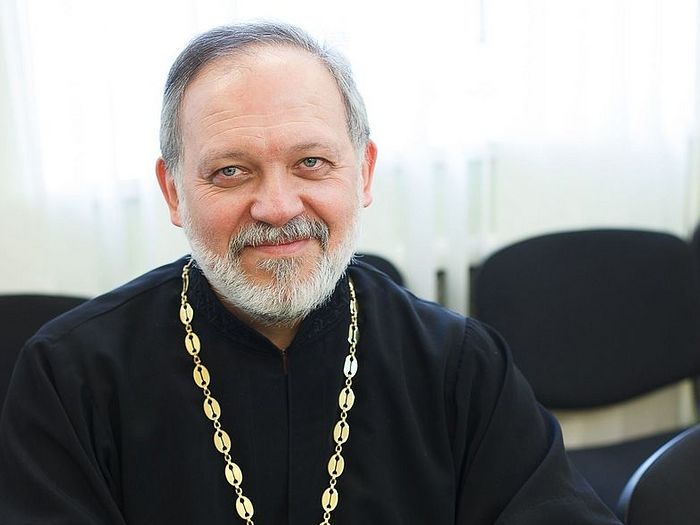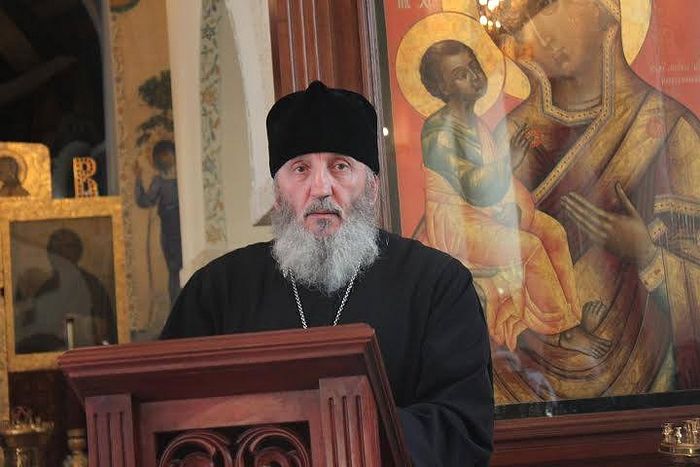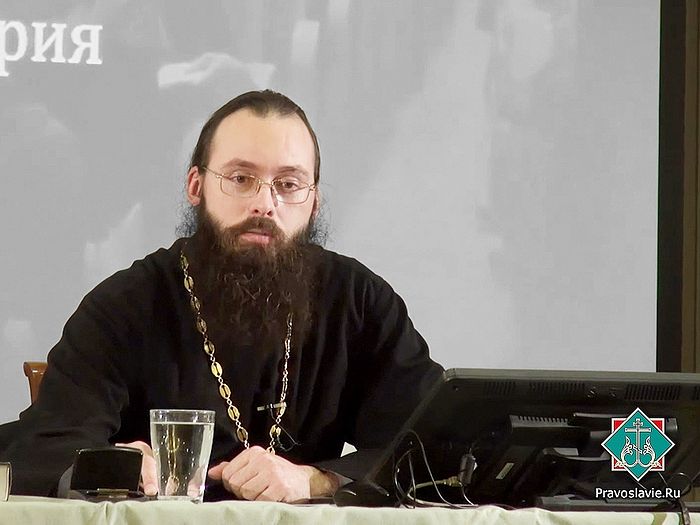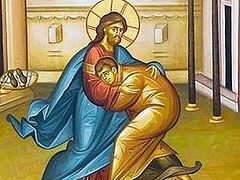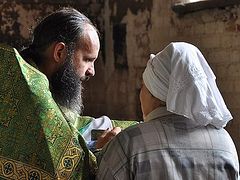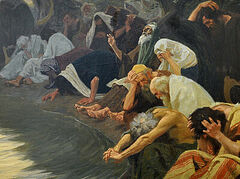With regards to the upbringing of children, what can we derive from the Parable of the Prodigal Son? Below are the pastoral responses in the context of the Sunday of the Prodigal Son.
Once you are left alone to face the world, you will discover many things you didn’t see before
Priest Alexander Dyachenko:
What a blessing to have someone out there who still loves you
We instill in our children the specific moral values that are of particular importance for us. Their significance was proven by our life experiences. It often happens that children disobey their parents because they haven’t yet had that particular experience in their lives. As a rule, children are self-centered egotists as they assume that the whole world revolves around them. The moment a family member makes a mistake or acts not the way you wanted, they take offense and come to the universally applicable conclusion: “No one understands me here.”
To love a child means educating him about the most important thing: how to be a good person. You shouldn’t be overly obsessive about this but simply teach by personal example. While he still depends on you in every possible way, the child will likely be unable to grasp all of it, but the time will come and he will be left alone to face the world. That’s when the answers will finally be revealed. You should pray for that time to come.
Speaking of myself, it was all revealed to me when upon graduation from the institute, I was drafted into the army and served the required one and a half years as an ordinary soldier. That’s when everything clicked into place inside my mind. Only then did I realize that I am actually “nobody” and my name is “nothing.” And how lucky you feel when you know that someone out there still loves you anyway. This healing thought makes you a person who is capable of being grateful.
There shouldn’t be any pressure but only wisdom-filled discussions about the falsity of illusory pleasures of life
Priest Lev Arshakyan:
What matters most in this case is a father’s love and wisdom. The Lord gives freedom to man, the freedom of choice. It is a vitally important component of the image of God we are bearing. It is practically impossible and quite dangerous to forcefully control a grown child. It is doable for the time being until he matures and realizes the freedom given to him by God to wander away to a far country, the world bristling with illusions, fantasy, false pleasures and comforts of life that would otherwise end up in death, if not for the gravitational power of love.
The parable pushes the whole situation to the limit. By all means, in real life, things can turn out differently. How far or how deep our children would venture to that far country depends on how strongly we attract them, how comfortable and happy they are around us, their parents.
The children will grow up and still leave for that far country no matter what. The crucial thing is they don’t wander too far away
But, one way or another, the children will still grow up and leave for that far country no matter what. The crucial thing is they don’t wander too far away. It’s important that they have a solid backup in the form of the love and wisdom of their parents. The parents should be able to empathize with their growing children—they are dealing with the challenges of teenage years, their childish dreams come tumbling down, and they finally realize that the surrounding world and their parents are far from ideal. Satanic lies ignite in children the desire to transform the world, making them believe that they surely know how to live flawlessly or to change it all for the better, that everything in my life will run perfectly well; and on top of it all, that life will bring nothing but fun.
As for fun, it is always questionable in nature and always based on passions. Only God’s elect remain pure and untainted by carnal passions. By the way, while talking of them, we can take a closer look at God’s chosen people to at least partly understand how they achieved such heights. We speak of the Mother of God, St. John the Forerunner, St. Nicholas the Wonderworker, St. Sergius of Radonezh—the list can go on and on. But it’s worth noting that all of them had parents who led a perfectly righteous life. Their parents were saints, who with their lives, love and wisdom bestowed upon their children the truth and the world of pure joy, rather than the world full of illusions. That’s why their children never ventured away to that far country.
Praise be to God that the prodigal son of the parable came back to his senses and returned home to his father, who never rebuked him, not even once, but waited for him to return—all the while loving and praying for him. Things that happened there should have happened. The illusory dreams crumbled, all temporal, fake beauty faded and passed, leaving only what this world is truly made of: death, fear, coldness, sickness, and a bitter feeling of abandonment, when no one wants you in your poverty and sickness. So, the son was ready to return to his father not even as a son but a workhand.
This is a key point. Man still has to go to that far country. The children should learn, one way or another, about the world full of illusory dreams, fantasies, and satanic lies, and then return to a place where they were happy. Everything is learned by comparison. Whoever knew no difference, who never made the right choice—he will continue to live in agony. That’s why it is so crucial to surround the children with genuine Christian truth, love, freedom, and candor. They need to be told of things they will face in the future to the extent necessary for their age and understanding. So that we wouldn’t get into a situation when we guarded and refined a child until he reached legal age, only to see him break loose, because all that he saw in his family was insincerity, hypocrisy, and violence.
There is a saying: “You are not dragged to God unwillingly but drawn towards Him.” You are drawn by love, wisdom, and joy.
As for violence, will repeat: It is dangerous, as it always triggers some sort of tension. Once the physical and intellectual forces are counterbalanced, this young man will come flying out, breaking bonds that kept him away from the previously hidden world. He will be overtaken by the satanic illusions that the world is awash with pristine beauty and joy, while he was previously kept in the dark. Certainly, he may then drown or go insane. That’s why there should be absolutely no pressure or tension, but rather wisdom-filled discussions about the falsity of illusory pleasures of life. Besides, the parents have to lead a true Christian life, devoid of hypocrisy. Children are greatly traumatized by parents who say one thing and do the opposite. It is a full-on catastrophe for children to see their illusion of having ideal parents come tumbling down.
If it is God’s will, they will find parents in God, the Mother of God and the Church. It won’t be easy though. First of all, we as parents have to build a relationship with God, the Church, and the Mother of God. Our children must see this so that they may gradually transform their familial kinship to the ultimate kinship.
There is a saying: “You are not dragged to God unwillingly but drawn towards Him.” You are drawn by love, warmth, light, wisdom, and joy. If your parents live accordingly, there will be no far country, as the children will be fine, having no need to escape.”
Major losses can help you learn valuable life lessons
Priest Valery Dukhanin:
“The Parable of the Prodigal Son tells us that we shouldn’t despair when we bring up our children. Even if your child, God forbid, strayed to wander in a far country and squandered away a fortune, even then we shouldn’t give up on him. Major hardships and losses can teach valuable life lessons. And there is Divine Providence in this, as well. Because that’s what caused the prodigal son to see clearly how much better and more precious is the love of his loved ones than the clueless freedom of staying next to the pig trough.
This parable also tells us that at a certain point, we as parents can’t control our children’s independent will. However, even in the most miserable of circumstances, the child will change his ill-advised decision, provided that the love of his parents shines as his guiding beacon of salvation.
The younger son of the parable is the mouthpiece of rebelliousness typically ascribed to the teenage years, but it can also surface at any other age. “I want it done all by myself and for myself” is his life’s motto. It is a rather unwise decision, and subsequently, his plan collapses. The attempts to separate too early from his loved ones leave this son in great trouble. He makes obvious bad decisions and is left with nothing.
As we see from the parable, his father never stopped loving his “enfant terrible.” He let him enjoy the freedom he so eagerly desired for some time only to accept him back again when his son had suffered such hard strokes of fate. Such an attitude to the fate of one’s child seems too harsh. Certainly, the Bible doesn’t call us to satisfy our children’s whims. Here is a short story from our life.
Vera, an acquaintance of mine, despite having her own kids, took custody of a six-year-old boy from a troubled and practically broken family. Quite tellingly, that family fed little Vanya with anything that came their way, including pig feed from a local farm.
Vera couldn’t imagine all the hardships she would have to endure with this child. For example, Vanya used to run away from home with his friends in search of his mother. Then they decided to hitchhike to Africa and even traveled on a commuter train for a few stops only to walk back home later. It went on and on for three long years. No counseling of any kind helped. So, following another flight from home, the child protection services informed them that they are going to take the boy back. Having no other choice, Vera sat the boy next to her and, putting any lecturing aside, simply said: “You lived here for three years; they want to take you away for such and such reasons. You have two days to decide and then tell me and the protection services what you really want.”
That’s when the boy was finally able to put two and two together. Tears flowed freely. A nine-year-old Vanya called the protection services himself and begged to allow him to stay with Vera. It is also amazing how, later on, he became the most hardworking of the children. (The thing is that Vera, besides her own two children, brought up ten adopted children). She signed Vanya up for guitar class, joining him and learning to play the guitar as well. When Vanya got interested in woodcarving, Vera went with him again, learning that craft with him. When Vanya grew up, he easily found his place in life.
Yes, there are amazing stories in life. What stands behind their success? For the most part, it’s about extraordinary patience, prudence, and love for your children—inconceivable in its depth and clear-eyed at the same time. It is like the love of the father from the Parable of the Prodigal Son.


